5 Important Things to Know Before Visiting Japan
An experienced traveler shares his Japan travel tips: how to prepare for the weather, why you should venture beyond Tokyo and Kyoto, advice on choosing your hotel, and more.
Shares
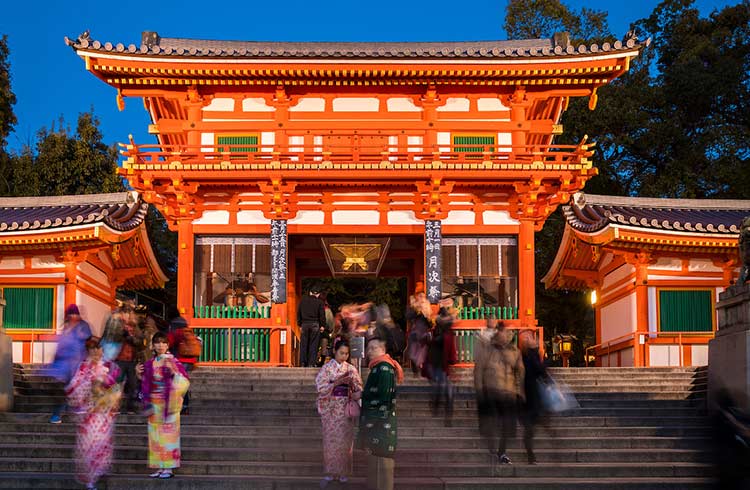 Photo © Richard I'Anson
Photo © Richard I'Anson
Japan has gradually become an easier travel destination for Westerners thanks to the advances of smartphones and wider use of English. But there are still plenty of potential complications. Here are my travel tips for Japan, and some of my favorite places to visit, gleaned from my many trips to this fascinating country.
- Buy a SIM card and change money at the airport
- Don't be fooled by the weather in Japan
- Pick a hotel based on its subway connections
- Venture beyond Tokyo and Kyoto
- Don’t eat and drink on the go
Buy a SIM card and change money at the airport
When you hit the arrivals hall in Japan, it’s natural to want to rush out of the airport in excitement to begin your trip. But I always pause for 10 minutes to complete two crucial tasks which, outside of the airport, are far more time consuming.
The arrivals hall will have desks where you can quickly and easily get a Japanese SIM card for your phone – so you can access Wi-Fi on the go – and change money. Once you reach your hotel, executing those two same tasks will require much more leg work. Only big, expensive hotels in Japan tend to offer currency exchange, and even then their rates are typically poor.
Which means you’d need to track down a bank that does foreign exchange, and then a phone shop that sells pre-paid SIM cards. Not to mention that neither that bank nor that phone shop is set up to complete these tasks for travelers as quickly and simply as those airport desks, which are specifically designed to service foreigners.
Don't be fooled by the weather in Japan
You may not realize it, but Japanese summers can be brutal. Marketing images of Japan often feature snowy peaks, misty rivers, and lush green forests, so it would be easy to perceive this country as having a cool climate. While Japan’s winters do range from chilly to freezing, depending on elevation or how far north you travel, many visitors will be surprised just how oppressive its summers can be.
I grew up the Australian city of Perth, where temperatures reach 110°F (43°C), and lived for years in famously steamy Bangkok. Yet even I struggle with the summers in Japan’s main tourist cities, where it can touch 100°F (38°C) and 80% humidity.
I found it embarrassing using Japan’s busy subways when I was lathered in sweat from walking the sights in this muggy heat. Japanese people are very careful about personal appearance and hygiene, so in my sticky state I felt unkempt and uncivilized amongst the clean, neatly dressed locals. Unless you have no choice, avoid Japan’s summer (June to August). That’s what I’ve done for many years.
Fortunately, Japan’s two most pleasant periods of weather (autumn and spring) are also when the country is at its most photogenic. That’s thanks to the spring cherry blossom season (March-April), and the polychromatic spectacle of its fall foliage (October-November).
Pick a hotel based on its subway connections
Japan’s subway systems are extremely efficient. But between navigating maze-like stations, and having to change trains midway through a journey, subway trips can still be time consuming – especially if you make the mistake of picking a hotel that isn’t central to the sites you wish to see.
That’s why preparation is key. I never pick my hotel first. Instead, I invest time selecting the sites I’d like to see in a Japanese city. Then I choose a hotel that is roughly in the middle of these attractions, and close walking distance to a large subway station.
That latter point is important, as bigger stations will connect you directly to far more locations. Whereas if you’re staying next to a smaller station, you’re going to waste more time having to catch multiple trains to reach your destination, dealing with potential confusion and frustration in the process.
Venture beyond Tokyo and Kyoto
Japan is a minimum 10-hour flight from the US and Canada, and even further away from Europe, so many Westerners view it as a once-in-a-lifetime trip. As a result, they tend to stick tightly to Japan’s tourist trail, and focus on Tokyo and Kyoto.
While they are two of the world’s most remarkable cities, consider branching out to deepen your experience of Japan. It won’t require much extra travel, especially from Kyoto, which is ringed by other wonderful cities. One of my favorite things about Kyoto is that in 80 minutes or less, Japan’s swift trains can land me in Osaka, Nagoya, Kobe, Nara, or Okayama.
Japan’s second-largest urban area after Tokyo, Osaka is a hyper-modern city spiked by ancient shrines, a grand castle, and sprawling temple complexes. Nagoya, too, has a magnificent castle, mesmerising religious sites and an array of impressive museums.
Wedged between mountains and the ocean, Kobe owns a spectacular location and is a renowned foodie city, due to its world-famous Kobe beef. Smaller Okayama city, meanwhile, boasts the distinctive and ever-so-photogenic Kurashiki, Japan’s version of Venice, with heritage architecture lining pretty canals.
Finally, Nara’s natural splendor is outshone only by its deep history. This was the first permanent capital of Japan, nearly 1,300 years ago, and the sublime remains of that Imperial hub are scattered through a serene, deer-filled forest.
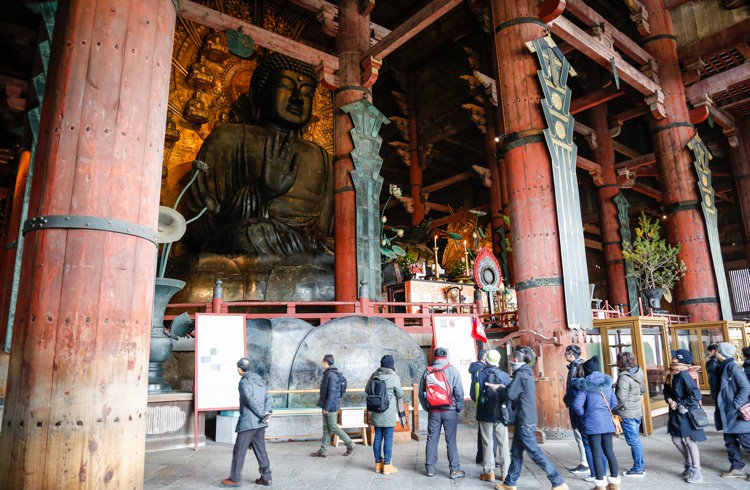
Don’t eat and drink on the go
Tokyo and Osaka are huge, fast-paced cities, yet you’re unlikely to see locals saving time by eating or drinking on the move. In Western countries, it’s common to encounter people walking along sipping a coffee, biting a snack, or even gorging on a meal, like a hotdog or hamburger.
But in Japan, it’s considered somewhat impolite, and messy, to eat or drink while standing or walking in public. Even when they buy a drink from one of Japan’s ubiquitous streetside vending machines, many locals will wait until they’re at home, the office, or at least seated, before they crack it open.
And do not, under any circumstances, drink or eat on public transport, except for long-distance buses and trains, some of which sell food. Japan is laden with wonderful restaurants, cafes, and bars, so just settle at one of those when you’re hungry or thirsty. Don’t consume on the go.
Related articles
Simple and flexible travel insurance
You can buy at home or while traveling, and claim online from anywhere in the world. With 150+ adventure activities covered and 24/7 emergency assistance.
Get a quote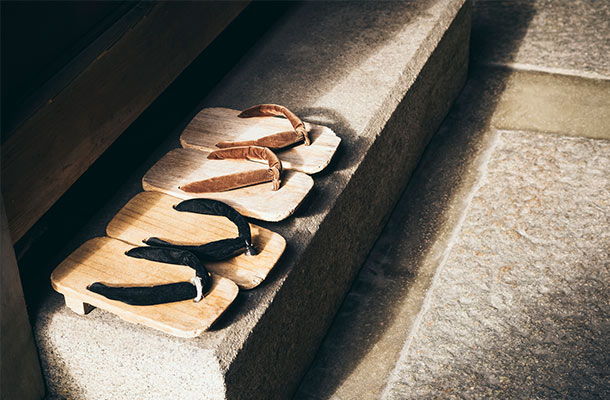
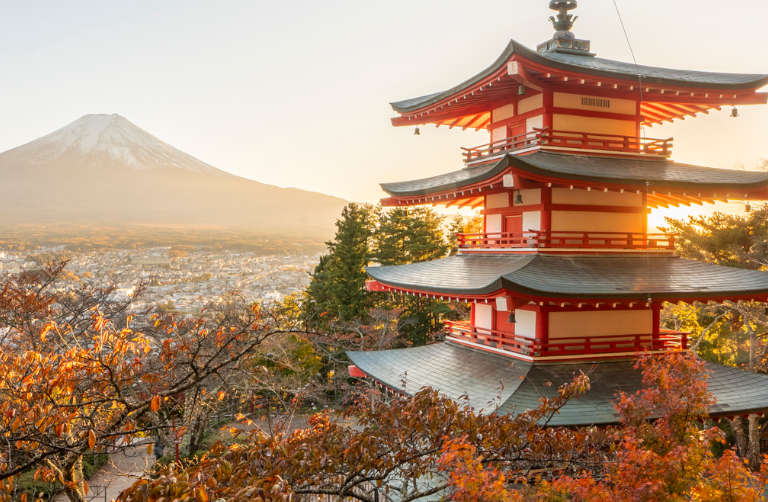
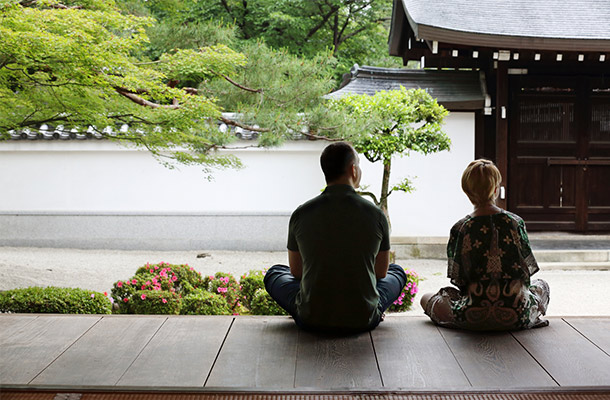
12 Comments
After losing her passport while traveling in Japan my mother and I found ourselves in a police station trying to ask for help in getting a new one. Luckily we had a hotel employee with us who was able to speak to an officer who spoke no English and translate for us the way to obtain a new one. The officer even drove us to the American Embassy.
I regards to point two... My partner and i recently travelled in Japan and did not have a single issue with ATM's. They are as common as 7/11. Almost every single 7/11 now has an international ATM available in it. As do 90% of post offices. Not once did we have a problem withdrawing cash, not even in the smallest of towns!
Thank you so much! That point had me concerned; I am single female traveling alone I rarely care a lot of cash even when abroad, I have not needed to since the mid 90's but this is my first trip to Japan - ever!
Thanks much...
This is the safest country I have ever traveled in. It is wonderful to know that the Japanese people will go out of their way to help you. I had a young couple walk at least 6 blocks to the right bus stop so i could get back to my hotel. Trains are easy to use and cheap, you do not need to buy in advance except for the bullet train. This is a must see country!
learn to speak japanese before going to japan
Good luck with that so on average i have the chance to see like 4 countries in my life time by your logic.
Yea! make sure to spend the 7 plus years it takes to learn a foreign language before going to another country. Lol really?
:) LOL! I was thinking the same thing!
Going to Japan in any case ought to be on the grounds that the spot is mind boggling. An aggregate society stun. Also, I am stating this subsequent to seeing a wide range of spots. The general population are neighborly and courteous, and make a special effort to help out you, regardless of the fact that they don't communicate in english. The nourishment is wild. All that stuff you considered attempting some time recently, you can discover it there. Well perhaps not human tissue, but rather then you ought to be bolted up some place if that is the thing that takes your extravagant for a nourishment treat.Onsen (hot springs) are all over the place and are an unmistakable part of the way of life. Any nation where scrubbing down in hot springs as a national side interest is a place.many individuals trust that Japan is one of the world's most costly nations. Truth be told, it's less expensive to go in Japan than in a lot of North America, Western Europe and parts of Oceania. Others believe that Japan is impervious or even out and out troublesome. The truth of the matter is, Japan is one of the simplest nations in which to travel. It is, basically, a spot that will remind you why you began going in any case. http://buddycab.in
You should know at least some of their language before you go there, even if it's just common phrases and simple words. I mean, think about it. Do you get upset at people for not knowing your language in your own country? You think, "well if they're gonna be here, they should know our language!" They probably feel the same. Besides, it's professional and shows your drive. I self-taught myself Japanese, and despite what you might believe, it did not take seven years.
This is an awesome post! We read this carefully before we went to Japan. It help us a lot. Thanks :D
Watch my 2 best friends (8 years) and I recently just went to Tokyo, Osaka and Kyoto (14 Days) # BestfriendGoals
Check out our travel video.
10 Things you should know about JAPAN
Part 1
https://youtu.be/pfGAT2Wn92A
Part 2
https://youtu.be/XxxvhARL7nk
Things to do before going to Japan first know all languages in Japanese is an East Asian language spoken by about 128 million people,primarily in Japan.Although Japanese is spoken almost exclusively in Japan,it has been spoken outside.As a result, many elderly people in these countries can still speak Japanese.If you would like to know phrases of Japanese continued reading and writing for good skills helpful guide most Japanese been studying and suddenly I found one that everyone speaks in "Japanese selection tips to communication with Asian foreigner while they have for new coronations".Japanese is kindly,polite,friendly,they are shy around make new people with local friends have chance meeting to Japanese purposely.